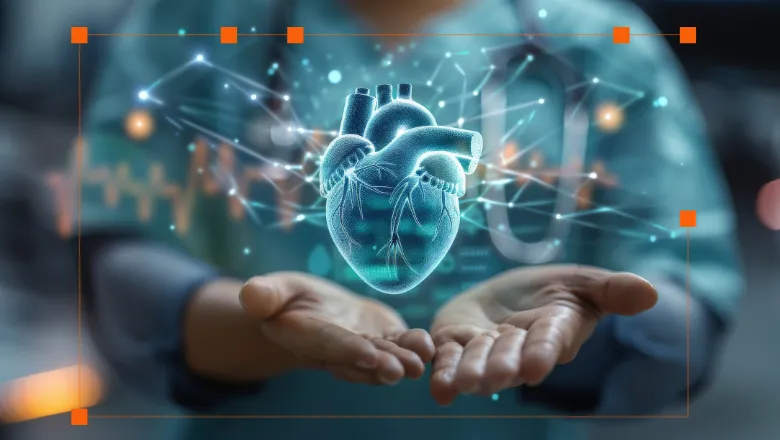This innovative project brings together researchers across our school in a multidisciplinary manner with engineers, researchers and mathematicians to try and solve an important clinical problem that aims to achieve earlier patient diagnosis. Specifically, we will be working together to try and understand novel features of cardiac damage before they manifest as heart failure, an example of this is with cancer therapy. This has the potential to inform doctors on the need to initiate heart failure therapy as an earlier marker before permanent damage occurs.
Dr Sohaib Nazir, Clinical Senior Lecturer, School of Biomedical Engineering and Imaging Sciences and Honorary Consultant Cardiologist, Royal Brompton Hospital
03 December 2024
Researchers awarded £1.3m to standardise heart function measurements using AI
A team of researchers from the School has been awarded funding from the EPSRC (Engineering & Physical Sciences Research Council) to study how artificial intelligence (AI) can be used to standardise the measurement of heart muscle strain, an essential metric for assessing heart health and disease progression.

The heart’s ability to pump blood depends on the contraction and relaxation of its muscles. A healthy contraction shortens the heart muscle by about 20%, but diseases such as heart attacks or conditions like chemotherapy-induced cardiotoxicity can reduce this contraction.
"Heart muscle strain is an essential metric that can be measured using several methods - for instance, ECHO, MRI, and CT scans. However, these methods yield inconsistent results and there is no standard way of measuring strain in a heart", explains project lead Professor Alistair Young. "Even a 1% change in heart strain can mean something significant in terms of patient outcomes. The challenge is that due to the variety of methods being used to calculate this, we are currently nowhere near the level of accuracy needed to make a definite call on whether a patient is getting better or worse".
Professor Young's project aims to establish a universal, consistent way to measure heart muscle strain, primarily using MRI and ECHO supported by AI. "The great thing about new AI methods is that you can learn on one imaging modality and then transfer that to another one. In this case, the AI model would be trained using MRI tagging - the Rolls Royce of heart strain measurement - which gives the most precise results but also takes very long to use." This neural network will then be used in other imaging modalities, consistently adapting scans to improve the comparability and reliability of results across different methods.
The research will involve experts across multiple disciplines at the School of Biomedical Engineering & Imaging Sciences, who will be developing the project over the funded term of four years.
This work has the potential to improve care for patients with heart disease or those undergoing treatments like chemotherapy. "A standardised approach will support personalised treatment plans for each patient, ensuring they receive the appropriate intensity of care based on accurate heart strain measurements." For cancer patients it could help assess how treatments like chemotherapy are impacting heart function, allowing for adjustments to therapy if needed. Similarly, for patients with heart conditions, it could provide precise metrics to evaluate disease progression and improve treatment.




